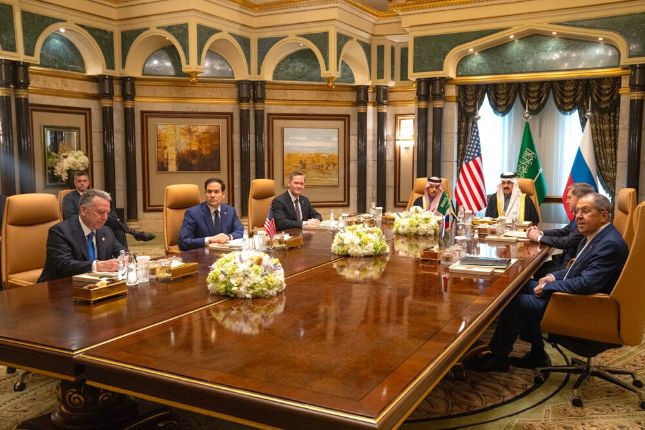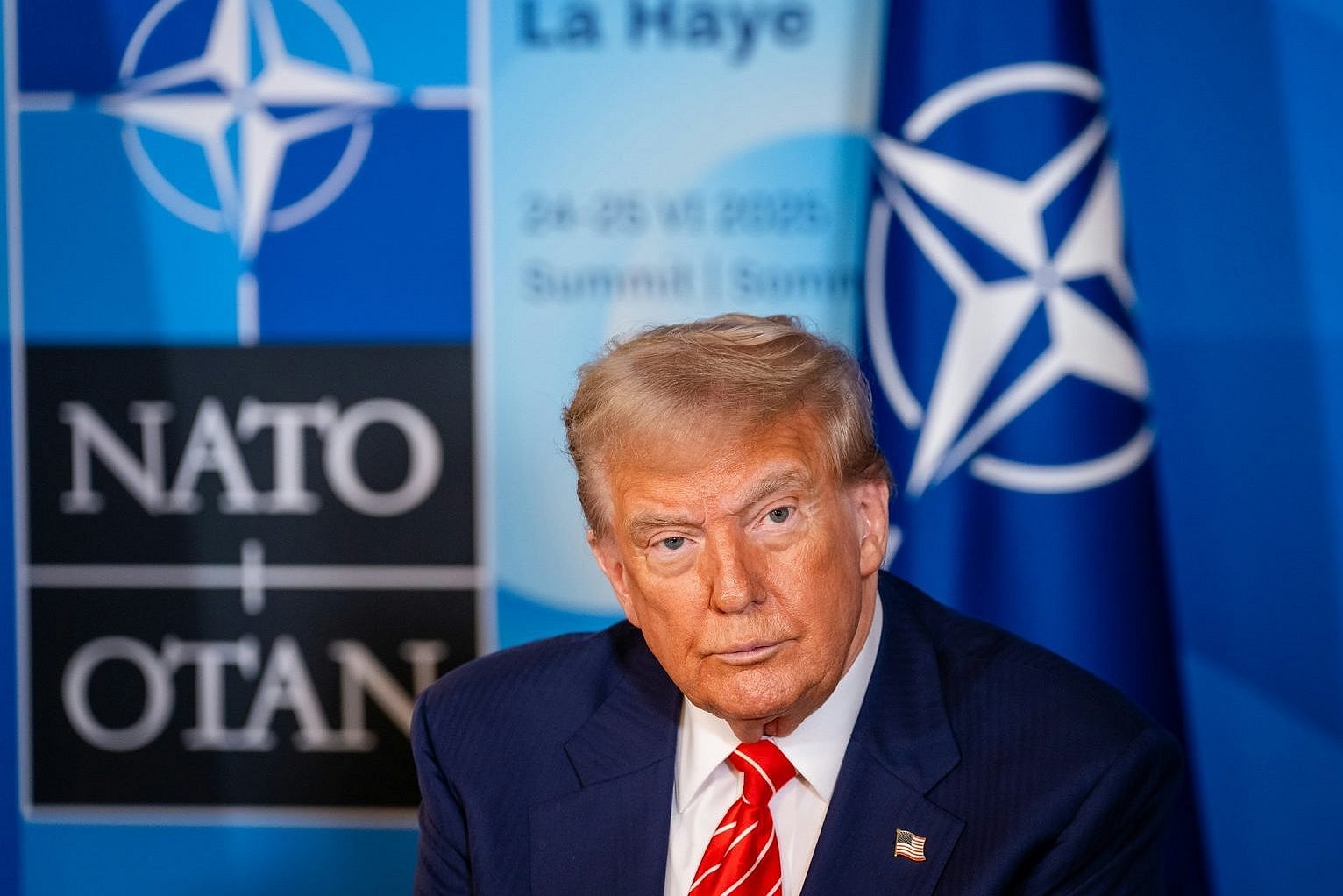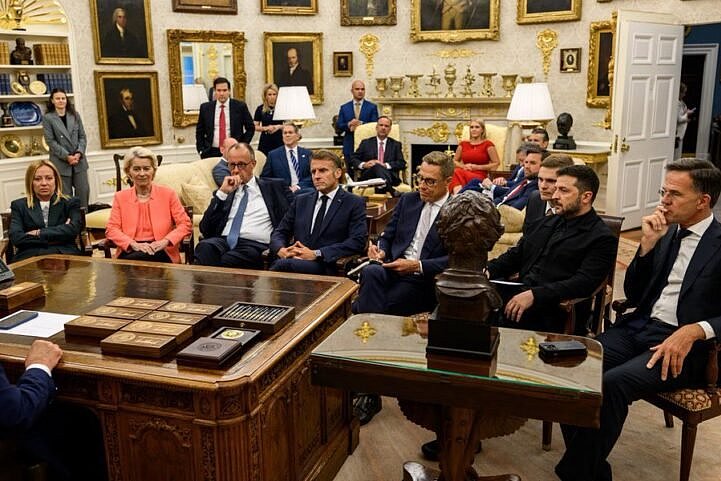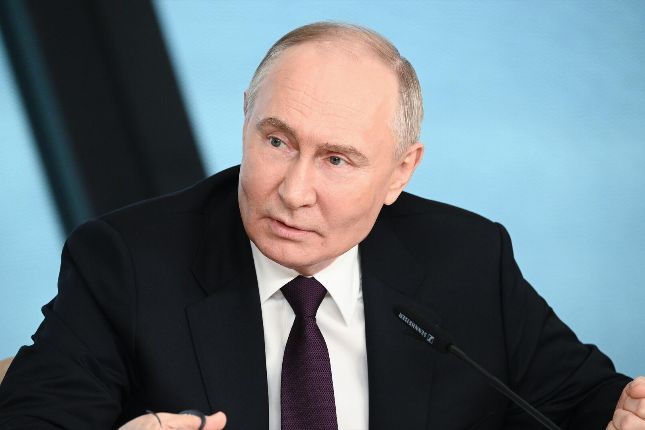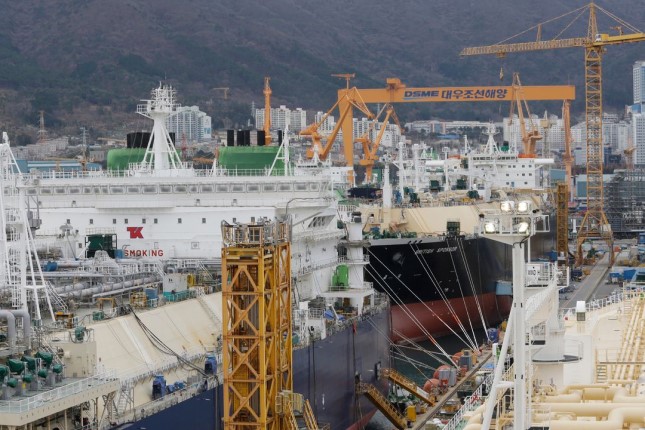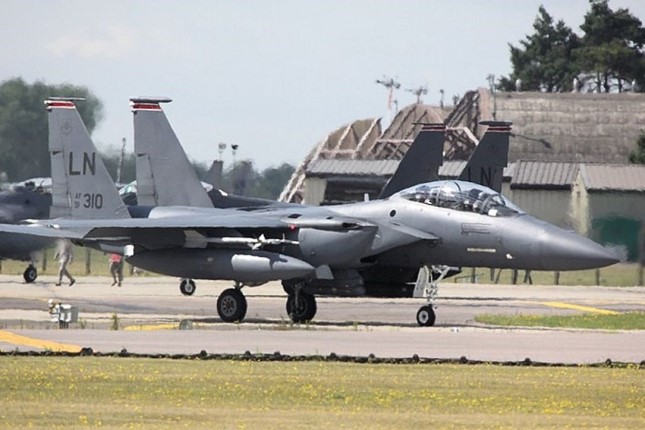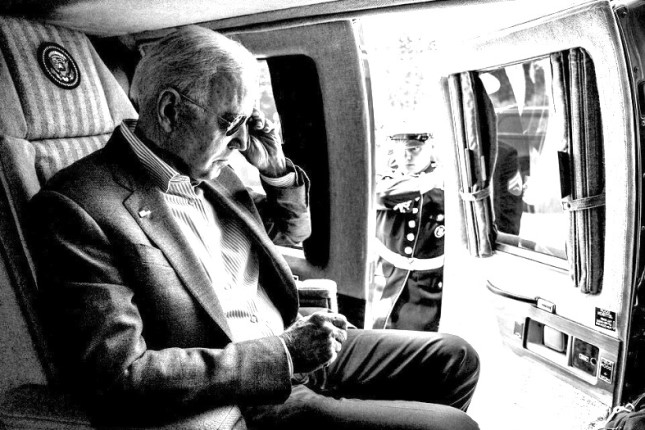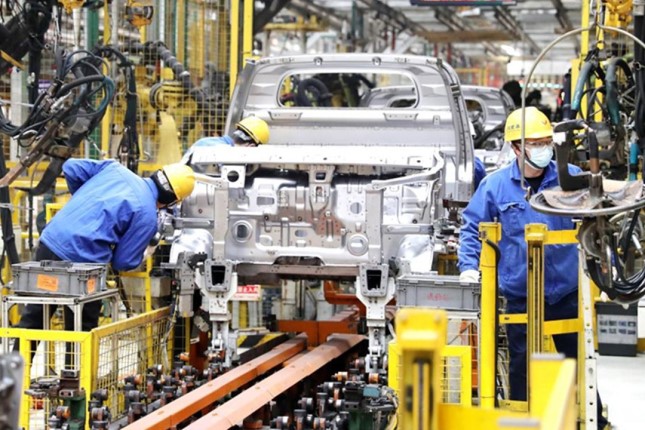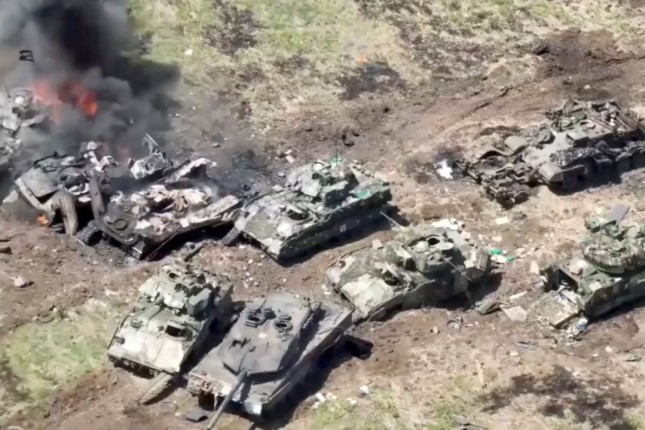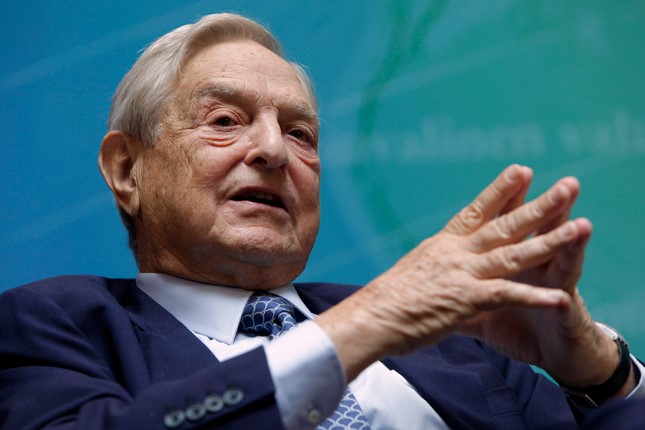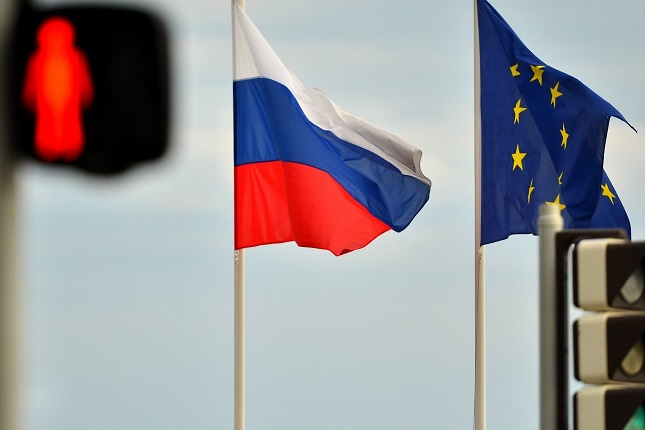The Ukrainian war, which began in 2014 as a civil conflict and led to Russia’s intervention eight years later in February 2022, appeared headed to a resolution after top U.S. and Russian officials met in the Saudi capital Riyadh on Tuesday, incensing European and Ukrainian leaders who were excluded.
Speaking to reporters after meeting with Russian Foreign Minister Sergei Lavrov on Tuesday, U.S. Secretary of State Marco Rubio laid out what was accomplished in Riyadh.
He said four principles had been agreed to: restoring ties by reopening diplomatic missions; the U.S. would appoint a high-level team to achieve “the end of the conflict in Ukraine” that is “enduring” and acceptable to all parties; the countries would work together towards economic cooperation; and the participants at the Tuesday meeting to remain engaged.
U.S. National Security Advisor Michael Waltz told reporters after the four and a half hour meeting that the U.S. was seeking a permanent end to the war.
“The practical reality is that there is going to be some discussion of territory and a discussion of security guarantees,” Waltz said, adding that President Donald Trump wants the killing to end and is “determined to act very quickly.”
Walz pointed out that less than a week after a 90-minute call between Trump and Russian President Vladimir Putin, the first call between Russian and U.S. leaders since 2021, the two sides were meeting in Riyadh.
“We expect to continue to drive that pace, not only to end the war, but then to unlock what could be very productive and stalizing relationships going forward,” Waltz said.
Asked whether the U.S. would accept Russian retaining territory that it conquered, Waltz said that is “for the tough work ahead, but the important thing is that we have started that process.”
“President Trump has shifted the question from if the war is going to end, to how it’s going to end,” Waltz said.
“What happened in Saudi Arabia is the most positive news for Ukrainians in years,” Jeffery Sachs, the Columbia University economist and geopolitical analyst, told Democracy Now! “President Trump understands, and unfortunately previous presidents did not, that the U.S. provocations need to stop, so this war stops, so the deaths stop. That is the bottom line.”
Sachs pointed out the 30-year expansion of NATO towards Russia’s borders despite a promise not to and over strenuous Russian objections; the U.S. backing for the 2014 violent coup in Kiev; the U.S. rejection of implementing the Minsk accords that would have left autonomous Russian-speaking areas inside Ukrainian borders and the U.S. rejection
Europeans Furious
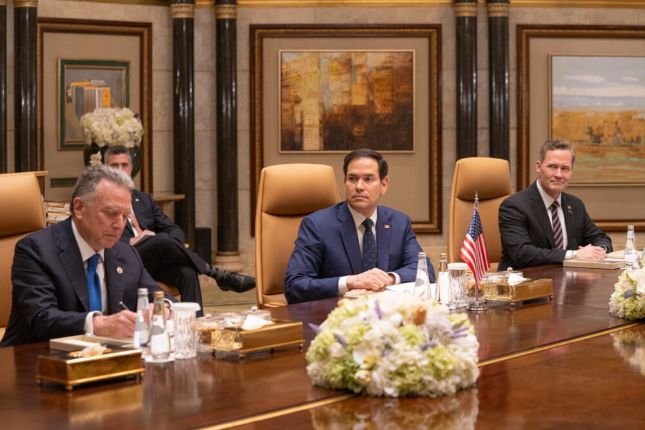
Secretary Marco Rubio, with from left, U.S. Middle East envoy Steve Witkoff and National Security Advisor Mike Waltz, attend a meeting together at Diriyah Palace in Riyadh, Saudi Arabia, February 18, 2025. (Official State Department photo/Freddie Everett)
Asked about sidelining the Ukrainians and Europeans from the process, Rubio told reporters that the “only leader in the world that could make this happen, to bring people together to seriously begin talking about it, is President Trump.” Rubio said every party to the conflict will have to agree to the settlement. “Nobody is being sidelined here.”
Russian Foreign Minister Sergei Lavrov told a press conference in Moscow before his departure to Riyadh that the Europeans don’t belong at the table. “I don’t know what they would do at the negotiating table… if they are going to sit at the negotiating table with the aim of continuing war, then why invite them there?,” he said.
The Europeans are furious that Trump is acting on his own after being solidly in line with the Biden administration on Ukraine, even at the expense of their own economies. The information, economic and ground proxy wars that the U.S. set in motion by provoking Russia’s intervention in the conflict have all been lost.
The Russian economy survived, but Europe’s, especially Germany’s, was badly damaged. It made Europeans appear to be vassals of the United States, ready to sacrifice everything to serve their masters. But the European reaction to the U.S. peace moves calls that notion into question. They are no longer obeying the U.S.
Vassals normally obey their masters. But the Europeans only obeyed the Americans when they agreed with a U.S. aggressive policy on Russia. When the U.S. now talks peace with Russia, Europe ceases to be vassals and rebels. It seems they were co-conspirators all along.
German rulers, for instance, went along with damaging the country’s interests, such as widespread de-industrialization and the destruction of Nord Stream, because the defeat of Russia was evidently more important to them than the interests of their people.
Ukrainian President Volodymyr Zelensky also complained bitterly that he was not being included in the negotiations. He went as far as trying to crash the negotiations, flying to the nearby United Arab Emirates from where he requested that the Saudis let him attend. When he was told to come on Wednesday, Zelensky arranged to go to Turkey instead.
“I don’t know who is attending these talks, and I don’t really care. We are completely transparent in what we do,” he said in Ankara. “I decided not to travel to Saudi Arabia [on Wednesday], and I don’t pretend otherwise.’
Sachs noted that Zelensky had ruled out any peace negotiations in October 2022, saying it would be “illegal.”
“Now they want a seat at the table, [when] they said they didn’t want any table all along,” Sachs said. “And Zelensky rules by martial law, by decree when the opinion surveys show that a majority of Ukrainians want peace right now even at the cost of territorial concessions.”
The Meeting in Paris
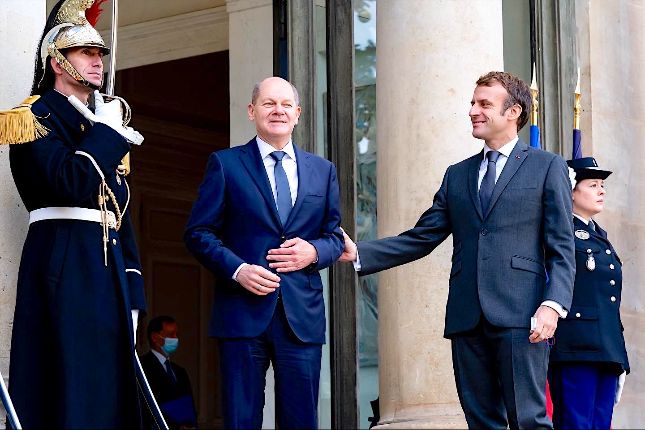
German Chancellor Scholz with Emmanuel Macron in 2021 in Paris. (French President’s Facebook page.)
Miffed European leaders were called by French President Emmanuel Macron to an urgent meeting in Paris on Tuesday to coincide with the Riyadh discussions in an attempt to demonstrate Europe’s relevancy.
“This was supposed to be a meeting of friends, of people who are supposed to agree with each other,” said geopolitical analyst Alexander Mercouris on his YouTube channel. Macron and British Prime Minister Keir Starmer … “planned in advance … to cobble together a European force to send to Ukraine after a peace agreement is reached,” he said, but it “blew up in their faces” when the other participants in the summit outright rejected the idea.
Creating such a force was intended, Mercouris surmised, to show that Europe is still a power to be reckoned with and as an attempt to wreck the negotiations begun in Riyadh. But Russia once again rejected the European force idea.
In the end Starmer and Macron could not even get a unified statement out of Paris because of the disagreement. German Chancellor Olaf Scholz left the meeting early, issuing a statement that it was “highly inappropriate” and “completely premature” to discuss peacekeeping forces, Mercouris said.
The Financial Times said the five European leaders “clashed” at the meeting, as Italy, Poland and Spain also rejected the peacekeeping proposal. Anatol Lieven, writing in Responsible Statecraft, called the Paris summit “theater and much ado about nothing.” He wrote:
“The chaotic state of present European thinking on Ukraine and the Ukraine peace process reflects this underlying lack of public will, as well as the bewilderment of European establishments that for many years have left responsibility for their strategy in the hands of the United States, and now find themselves expected to think for themselves.”
Mercouris called the sidelining of Europe, brought about by the breathtaking change in U.S. policy towards Russia and the eventual end of the war, a major event in the past six centuries of European history.
“The end of the Ukrainian conflict is going to result in a significant rearrangement of the geopolitical pieces around the world,” Mercouris said. Though it isn’t clear yet how extensive that change will be, he argued it was “fair to say that the United States, Russia and China are indisputably emerging as the great powers. Europe, which has been the core continent in global affairs since the 15th century, and which dominated international affairs in the 20th century, is now definitely in eclipse.”
Main photo: High-level U.S. and Russian delegations meeting on Ukraine in Riyadh, Saudi Arabia on Tuesday, Feb. 18, 2025 © U.S. State Dept.
Source: Consortium News.
